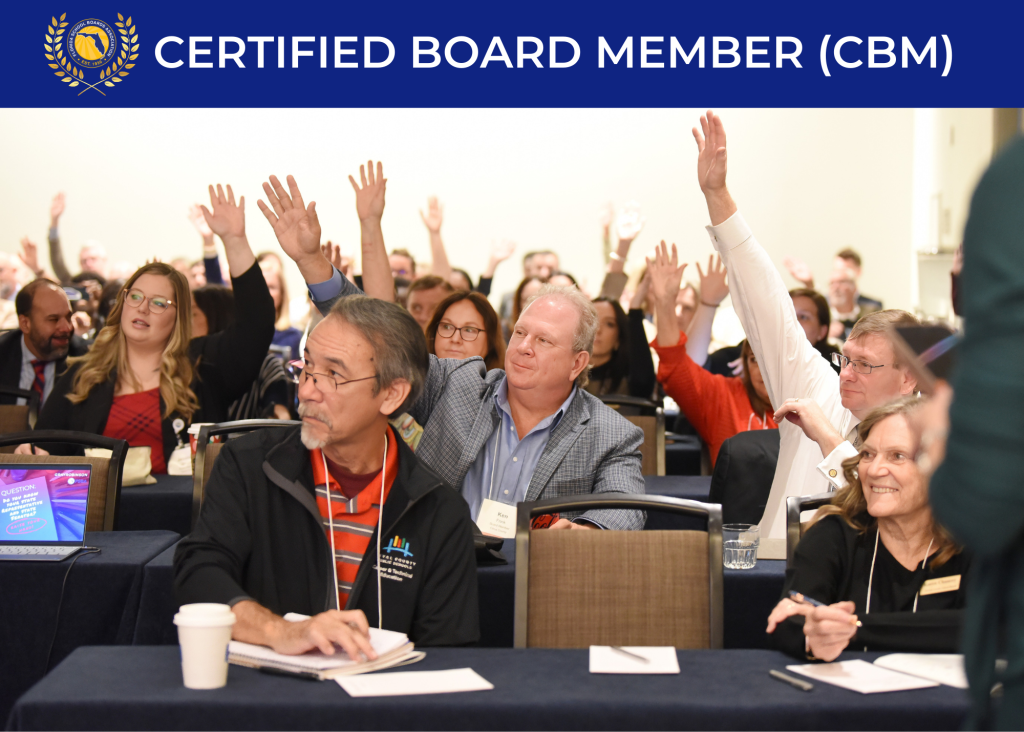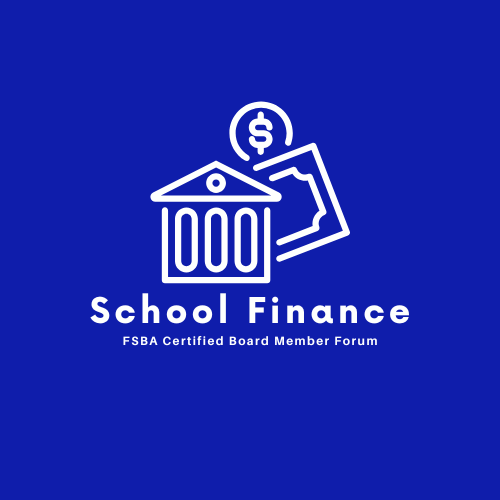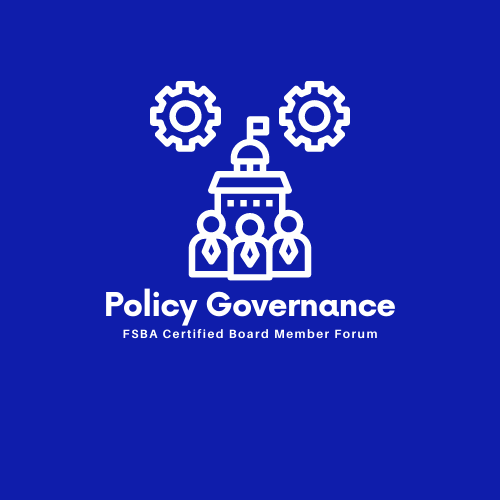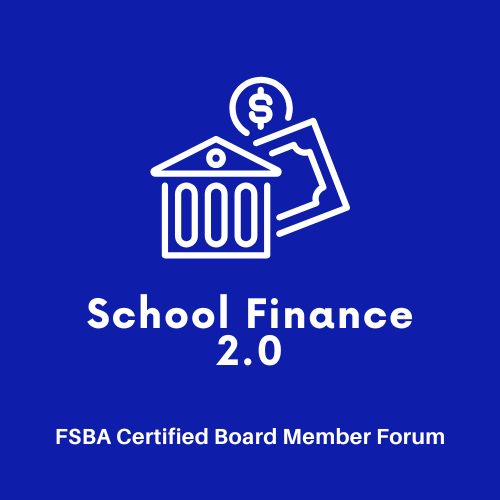Q: How can the CBM Program benefit board members?
A: The Program offers training events to assist board members in developing a high level of boardsmanship skills and knowledge in 3 curricular areas.
Q: When and where are prescribed CBM Forums offered?
A: To earn the CBM distinction, members must attend the Bargaining 101, School Finance, and Policy Governance Forums. These forums are typically offered biennially at a designated site. The most updated information is available on the FSBA Events & Registration page. School Finance 2.0 and Advanced School Finance Forums do not meet the School Finance requirement for the CBM program; however you are still eligible to earn points by attending.
Q: How are training events documented for points in the CBM Program?
A: School board members must complete a reflection form for each training attended and submit it to the FSBA Office for processing. For your convenience, these forms are available to be submitted electronically from your computer or mobile device. You may access the CBM reflection forms HERE.
Q: How many hours of training equate to one point in the CBM Program?
A: One (1) hour of training equals 1 point. Training events involving a fraction of an hour may be counted as 1 point if the fraction equals or exceeds ½ (e.g., 1½ hours = 2 points; 1¼ hours = 1 point).
Q: Are points earned in the CBM Program forfeited if the Program is not completed in a specified length of time?
A: NO, points in the CBM Program are always recognized, regardless of date, for any training completed while holding the elected office.
Q: How long does it take to complete the CBM Program?
A: The Program usually takes 2 years to finish, however some board members have completed the curriculum in 18 months.
Q: When does the CBM recognition year end?
A: The recognition year begins January 1 and concludes December 31 of each year.
Q: How is the CBM distinction retained after it has been awarded?
A: The renewal requirement must be satisfied each recognition year by earning 15 points and submitting those points no later than December 31 of the following year.
Q: How are board members advised about CBM points earned?
A: Board members are able to log into the membership database 5-7 days after submitting CBM form(s) to view points under the CEU tab of the eMbr member profile.
Q: Can points be earned for the CBM Program at events other than FSBA trainings and conferences?
A: YES! Training opportunities offered by school districts, educational or noneducational organizations, universities, the Florida Department of Education, etc., are appropriate for earning CBM points. Advanced approval for such training is NOT required. When submitting a CBM form for training that is not hosted by FSBA, you are required to submit an agenda, certificate of training or other documentation of training for the event to sanders@fsba.org
Q: How are board members recognized for completing the CBM Program?
A: CBM recipients receive a CBM plaque and pin along with a press release announcing their achievement. They are also permitted to add the FSBA CBM logo to their email signature. Note: They must retain their distinction to continue using the CBM logo.
Q: Does the FSBA Office provide a copy of the press release to the recipient of the CBM distinction?
A: YES! A crafted press release are provided to the CBM recipient so that it can be distributed to daily and weekly newspapers that are in circulation within the school district.
Q: Can the CBM distinction be used on business cards and in election campaigns?
A: YES! It is always a good idea to verify your CBM status with FSBA staff prior to touting this distinction on distributed materials.
Q: Can Master Board training, FSBA Committee Meetings, or my local school board meetings/workshops be used for points in the CBM Program?
A: Unfortunately, no. Master Board is a separate program tailored specifically for governance teams and has a different set of requirements. In addition, FSBA Committee work is important, but voluntary and not counted as CBM points. Lastly, while workshops and school board meetings may be informative and demonstrate leadership skills, they are also excluded from point accrual in the CBM Program.
Q: Does it cost to participate in the CBM Program?
A: The only expenses associated with the Program are registration fees for trainings or conferences AND related travel expenditures.






